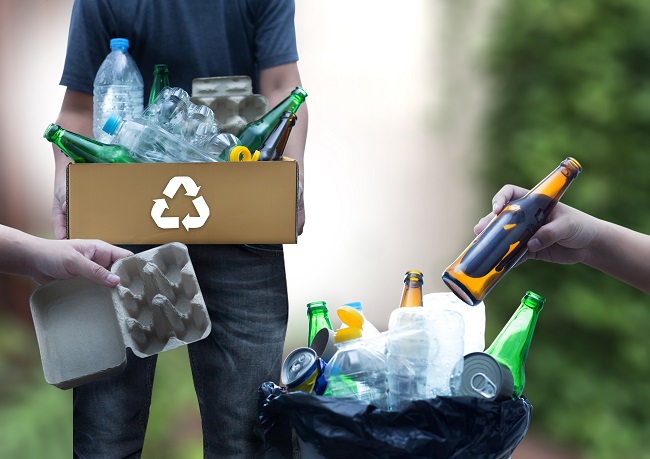R.O.L.E. Foundation practices 6 R’s of Sustainability to reduce the amount of waste we are producing: Review, Refuse, Reduce, Reuse, Recycle, and Rethink your Residue. In a series of 7 blogs, the 6 R’s are explained to give practical information about what we as a consumer can do to reduce our ecological footprint by applying these practices in our daily life and household.
1: REVIEW
REVIEW is the first R of sustainability. This is maybe the most important one, because here you decide what you will buy or maybe not buy. Natural resources are limited, and once you truly realize this, then you are likely to rethink your everyday choices. Minimizing the amount of waste, you create a more sustainable environment for future generations.
REVIEW what you buy and what waste it will produce
Do I really need this? That’s the question you should be asking yourself before buying something. By reviewing what you buy and the waste it will produce, you can start considering alternative products with less packaging and consider how you can further reduce your environmental footprint. For example, bring your own bag to the store to avoid receiving a single use plastic bag when you shop.
Here are four easy tips to minimize your waste:
- Always ask yourself when shopping if you really need something, what purpose will it serve and for how long. This will change your mentality and help you reduce the amount of waste you produce.
Did you know that of all the stuff we buy, 99% of it is trashed within 6 months?
2. Also, if you need to buy something, you can choose a product with the least harmful packaging for the environment. Choose paper or glass over plastic. Choose no packaging if possible, so bring your own reusable bags and pots and boxes.
- Buy big quantities of food, so the packaging is less compared to several smaller packages.
It’s often cheaper to buy bigger quantities, so buying big will save you money!
- Review where the products are coming from. If you buy local, then less transport so less harm to the environment.
REVIEW the waste you have in your bin by using S-O-R-T
After you have become more aware of what you buy, you can now further review the waste that was produced. An easy way to do this is following the S-O-R-T principle: Separate, Observe, Record, Track.
By separating between organic and non-organic, and then between recyclable and non-recyclable non-organic waste, you are sure no waste will be disposed needlessly. Because the organic waste and the recyclable waste can go to composting and recycling organizations in your area. Or you start making your own compost!
Before you start, just make sure you know about the way these organizations are handling waste, so you know exactly what and how to separate.
Along the way, you will start to understand your consumption habits and its impact on the environment. And you will see: it’s a rewarding process to see the amount of waste you produce diminish!
Your waste is your responsibility
REVIEWING your waste is a simple and important step in the process to reduce your ecological footprint. Next week’s blog will be about REFUSE: How to further avoid waste coming into your household. Join us in a journey to take responsibility over your own waste!


Recent Comments